Before knowing about how Artificial Intelligence is transforming the World and affecting our lives unknowingly, let’s understand what is Artificial Intelligence. I know most of us already have answers to this in today’s digital world. However, let me explain in my simple words:
The ability of a machine or computer program to carry out tasks that ordinarily require human intelligence is known as artificial intelligence, or AI. This covers tasks like problem-solving, identifying patterns, comprehending natural language, and learning from experience. AI seeks to develop systems that can replicate or simulate cognitive processes that humans have in order to make machines intelligent and able to make decisions on their own.
How Artificial Intelligence is Transforming the World
Artificial Intelligence or AI has become a silent force in the quickly changing technological landscape, changing our world and impacting our lives in ways we might not even be aware of. AI silently works in the background while we go about our daily lives, affecting many facets of our lives. Now let’s know how AI is transforming the World in different ways:
Seamless Integration into Daily Life
Artificial intelligence has become a seamless part of our everyday lives, frequently without our awareness. Artificial Intelligence permeates every aspect of our digital lives, from voice-activated virtual assistants like Siri and Alexa to personalized suggestions on streaming services. We now take this integration for granted, rarely realizing the intricate algorithms and machine learning models that toil away in the background to improve our convenience.
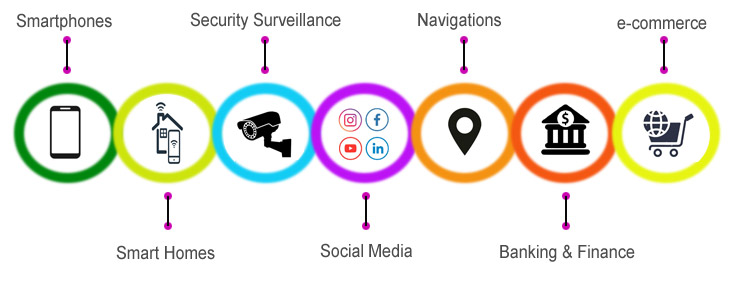
Artificial intelligence constantly shapes our decisions and lifestyles. AI is influencing our decisions in some way whether we are using our phones, browsing the web, making online purchases, using routes, lounging around on social media sites, or listening to music on our favorite music streaming service.
AI decision-making systems possess the capacity to learn and adjust. For instance, semi-autonomous cars are equipped with sensors that alert drivers and other vehicles about impending traffic jams, potholes, road construction, and other potential obstructions.
Without the need for human intervention, vehicles can benefit from the experience of other vehicles on the road, and the entirety of their acquired “experience” is instantly and completely transferable to other vehicles with comparable configurations. Incorporating knowledge of existing operations, its sophisticated algorithms, sensors, and cameras convey information in real-time through dashboards and visual displays, enabling human drivers to comprehend traffic patterns and other vehicle circumstances. When it comes to fully autonomous vehicles, sophisticated systems can take full command of the car or truck, autonomously executing all navigational decisions.
Transforming Healthcare
AI is subtly changing how diseases are identified and treated in the healthcare industry. Large volumes of medical data can be analyzed by sophisticated machine learning algorithms, which can help with early illness identification and individualized therapy recommendations. Wearable technology that incorporates artificial intelligence (AI) helps track health by giving users information about their well-being without them being aware of it.
It has already been demonstrated that AI is capable of accurately diagnosing some illnesses, like cancer. It’s likely that in the future, AI will have an even greater impact on healthcare. Moreover, Artificial intelligence is being utilized to enhance surgical techniques. AI is used by surgeons, for instance, to assist with surgical planning and guidance. This may contribute to more precise and effective surgical procedures.
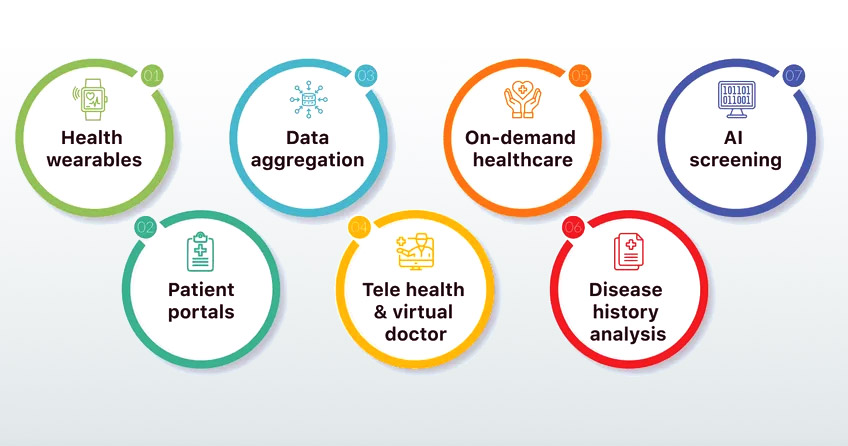
As per an article published by Brookings – “Detects lymph nodes in the human body in Computer Tomography (CT) images” is one of its uses in medical imaging. Its researchers say that marking the nodes and spotting little growths or lesions that might be troublesome is crucial. Although radiologists charge $100 per hour and may only be able to carefully read four photos in an hour, humans are capable of doing this. This method would cost $250,000 if there were 10,000 photos, which is unaffordable if done by humans.
As technology advances, the promise of AI in healthcare becomes increasingly apparent. AI can significantly improve healthcare by improving patient care, reducing costs, and increasing operational efficiency.
Transforming Healthcare with IT (THIT) is the largest Healthcare & IT-based International conference and trade show in India organized by Apollo Telemedicine Networking Foundation every year. If you are interested please have a look at the conference detail here:
11th International Transforming Healthcare with IT (THIT) Conference 23 - 24th February, 2024
Shaping Financial Landscapes
AI’s capacity to analyze massive information and spot market trends is causing a huge upheaval in the financial sector. Robo-advisors, fraud detection systems, and algorithmic trading – all fueled by artificial intelligence – subtly impact financial transactions by forming investing plans and thwarting fraudulent activity.
These days, loan decisions are not only based on a borrower’s credit score and background check but also on algorithms that may consider a multitude of finely parsed data points.
Another way AI benefits financial systems is in fraud detection. While it can be challenging to spot fraudulent activity in big businesses, artificial intelligence (AI) can spot anomalies, outliers, or unusual occurrences that need more research. This aids managers in identifying issues early in the cycle before they become hazardous.
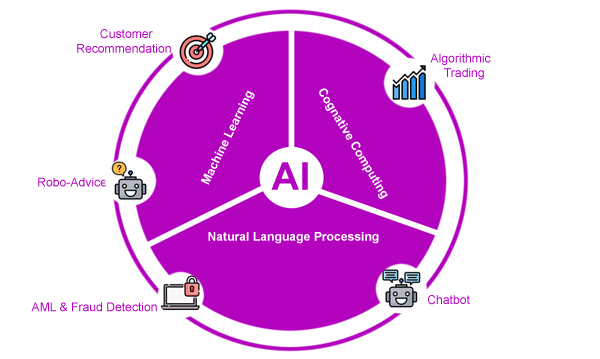
Furthermore, there are services known as “robo-advisers” that build customized investment portfolios, doing away with the requirement for financial advisors and stockbrokers. These developments aim to remove emotion from investment decisions and replace it with a minute-by-minute decision-making process based on analytical factors.
AI has many advantages in the financial sector. Possibly the greatest benefit of AI is the plethora of automation potential it provides. Automation, on the other hand, can assist financial institutions in raising the output and effectiveness of numerous procedures. Furthermore, since AI may take the place of humans in some circumstances, it helps remove human biases and other errors brought on by psychological or emotional variables.
Educational Impact
AI is changing the face of education by offering individualized, needs-based learning experiences. AI-powered adaptive learning systems evaluate student performance, pinpoint areas for development, and dynamically modify assignments. The learning outcomes are improved by this slight personalization, even if students are not aware of the underlying technology.
AI and ChatGPT have the potential to completely transform academic research since they can process and analyze massive volumes of data more quickly than traditional approaches, leading to discoveries, ideas, and literature reviews. ChatGPT can help researchers write papers by generating text portions and offering comments and ideas. It can also be applied to natural language processing tasks including sentiment analysis, text summarization, and language translation to analyze unstructured data.
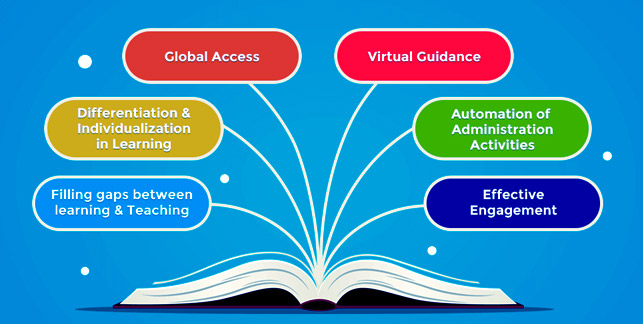
Although implementing AI in education has numerous advantages, there are also moral issues that must be resolved. The possibility that artificial intelligence will reinforce current prejudices and discrimination in education is one of the main worries. Concerns exist over how AI may affect student privacy and data security as well.
There are many AI Tools that can be helpful to students in many ways. A special article written on this is Best 20 AI Tools For Students In. In this
Transforming The Transportation Industry
Artificial Intelligence (AI) has the potential to revolutionize the transportation sector by providing creative solutions and changing our perception of how to move people and things. Here are some examples of how AI could transform the transportation industry:
- Astute Traffic Control
- Vehicle Predictive Maintenance
- Driverless Automobiles
- Improved Supply Chain Optimization for Public Transportation
- Tailored Travel Support
- Better Safety Procedures
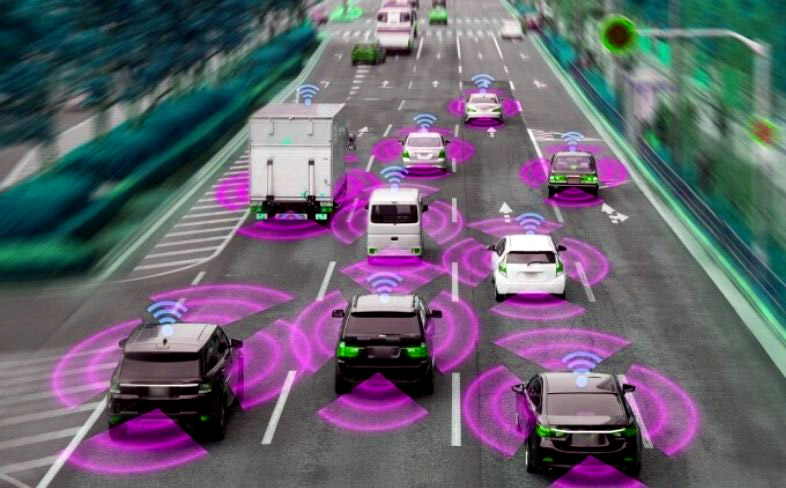
AI has a wide range of possible applications in the transportation sector. AI is going to completely change the way we think about and interact with transportation in the future. It will do this by enabling autonomous driving, streamlining traffic management, and changing vehicle maintenance. Accepting these advancements promises a more sustainable and integrated transportation ecology in addition to enhanced efficiency and safety.
Transforming The National Security
The field of national security is radically changing due to AI. By streamlining military operations, improving intelligence analysis, and fortifying cybersecurity defenses, the use of AI technologies enables countries to confront security issues more skillfully in a dynamic and rapidly evolving global landscape. To guarantee responsible and safe application, it’s crucial to weigh the advantages of AI against moral issues and possible hazards. Here are a few examples of how AI is impacting and changing national security:
- Cybersecurity Defense
- Threat Intelligence and Analysis
- Surveillance and Reconnaissance
- Predictive Analytics for Defense Planning
- Autonomous Vehicles and Military Systems
- Counterterrorism and Counterintelligence
- Natural Language Processing for Intelligence Analysis
- Quantum Computing for Encryption
- Automated Threat Response
- Video Surveillance and Facial Recognition

Thanks to its increased capabilities in threat detection, prevention, and response, artificial intelligence (AI) is leading the charge in revolutionizing security. Artificial intelligence (AI) technologies are transforming security infrastructure to become more resilient and adaptable to meet the ever-changing demands of the modern world, whether in the digital domain of cybersecurity or the physical domain of surveillance and access control.
Transforming Criminal Justice
AI presents both opportunities and challenges as it continues to find its way into the field of criminal justice. Law enforcement and legal personnel can greatly benefit from AI’s efficiency benefits and analytical skills. But it’s important to proceed cautiously, addressing issues with biases, privacy, and ethical considerations. As society navigates this revolutionary journey in criminal justice, maintaining the concepts of justice while keeping pace with technological advancements is imperative. The impact of the silent revolution on the criminal justice system’s efficiency, fairness, and ethical considerations is still being felt.
The following are some of the ways AI is changing the criminal justice system, presenting both potential and difficulties:
- Police Predictive
- Expanded Inquiries
- Analysis and Case Management
- Risk Evaluation and Penalties
- Behavioral analysis and criminal profiling
- Technology in Courtrooms
- Analysis of Post-Conviction Records
Artificial Intelligence (AI) technology has been the driving force behind a quiet transformation in the criminal justice system in recent years. Artificial Intelligence is changing the criminal justice system, helping with fair sentencing and increasing investigation efficiency. AI can be applied to these integrated data sets to enhance national security and law enforcement by matching sounds and photos with other kinds of information. This is made possible by new technologies.
Smart cities
The development of smart cities is fueled by AI, which provides answers to challenging urban problems. AI technology integration will be essential to building more resilient, sustainable, and citizen-centric urban settings as cities continue to grow. The continuous change is about creating smarter, more responsive cities that put their citizens’ welfare and quality of life first, not merely about adopting technology. A closer look at how AI is changing smart cities is provided here:
- Optimization and Management of Traffic
- Sensible Public Transport
- Sustainability and Energy Efficiency
- Security and Safety for the Public
- Optimization of Waste Management
- Urban Design and Planning
- Community Involvement and Services
- Water Resources Management
- Medical Care and Emergency Services

Cities are setting the national standard for the use of AI solutions through these and other strategies. Indeed, 66 percent of American communities are investing in smart city technologies, according to a National League of Communities survey. “Smart meters for utilities, intelligent traffic signals, e-governance applications, Wi-Fi kiosks, and radio frequency identification sensors in the pavement” are a few of the report’s top applications.
Conclusion
Here is the conclusion of “How AI is Transforming the World”.
We must recognize the ubiquitous impact of artificial intelligence as we manage the complexities of our contemporary, technologically-driven life. This revolutionary force works in the background, sometimes going unnoticed, influencing industry, our decisions, and the environment we live in. Understanding the nuanced effects of AI forces us to think about the moral ramifications and make sure that, as technology advances, it works best for humans.
FAQ
How artificial intelligence is changing your life without knowing you?
Your life is being subtly impacted by artificial intelligence (AI), which is present in automated procedures, smart assistants, and personalized recommendations. Artificial intelligence is permeating every aspect of daily life, from voice-activated gadgets to personalized content recommendations, frequently influencing decisions and convenience without the user even realizing it.
How artificial intelligence is transforming the world?
The world is changing due to artificial intelligence (AI), which is reinventing industries, increasing efficiency, and enabling automation. Artificial Intelligence (AI) is changing the way we work, communicate, and go about our lives in several ways. From predictive analytics to autonomous systems.
What are the common risks of artificial intelligence?
Job Displacement: AI-driven automation may result in job displacement across a range of industries, affecting career prospects for specific occupations.
Fairness and Bias: AI systems may be programmed to reproduce biases seen in training data, which could result in unfair or discriminating outcomes, especially when making decisions.
Privacy Issues: Because personal information can be abused or misused, the widespread use of AI in data analysis and surveillance presents privacy issues for individuals.
Security Threats: Security risks include attacks on AI models, data manipulation, and security breaches. These risks are made more likely by the growing complexity of AI systems.
Lack of Transparency: Because sophisticated AI algorithms frequently function as “black boxes,” it can be difficult to comprehend how they make decisions, which raises questions about accountability and transparency.
Ethical Dilemmas: AI brings up moral issues related to the deployment of autonomous weaponry, the morality of AI judgments, and accountability for AI-generated behavior.
Dependability and Dependability: Over-reliance on AI systems in the absence of sufficient human supervision can result in serious malfunctions, particularly if the technology is not well-tested or does not include strong fail-safes.
Inequality in Society: Because not everyone will have equal access to cutting-edge AI technology and their benefits, the adoption of AI could worsen already-existing socioeconomic inequities.
Effect on the Environment: Large AI model training and execution can have a substantial negative impact on the environment by increasing energy use and carbon emissions.
Is AI good or bad for society?
AI’s effects on society are complex. AI has the potential to provide several advantages, including increased productivity, advances in medicine, and better services. Nonetheless, issues with potential biases, ethical issues, and job displacement exist. The way AI is developed, used, and regulated will determine the overall impact.
Will AI Lead to Job Loss?
AI has the potential to cause job losses because it can replace some jobs with automation and better efficiency. However, depending on how society responds to these technological advancements, it also has the potential to reshape industries and generate new jobs.
How Can AI Improve Healthcare?
AI can boost healthcare by streamlining administrative procedures, enhancing diagnoses, and creating individualized treatment plans. To diagnose diseases early, find new drugs, and improve patient care, machine learning algorithms evaluate medical data. These analyses result in more effective and efficient healthcare delivery.

